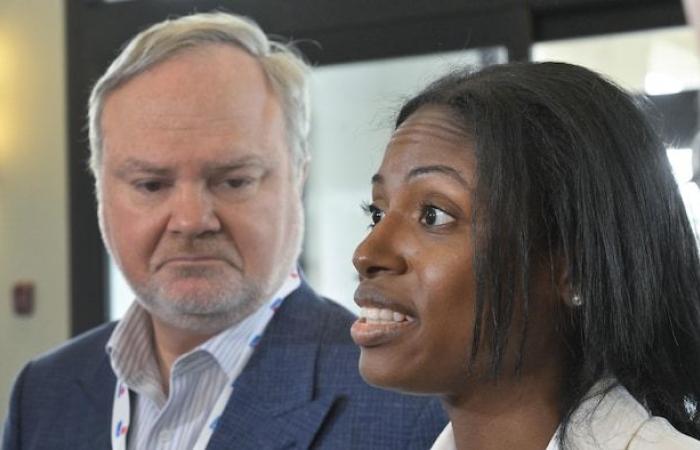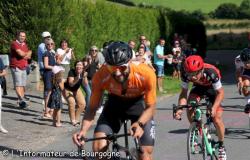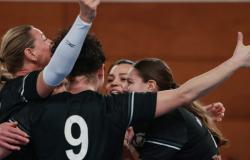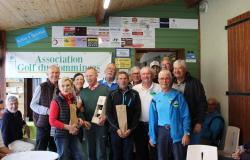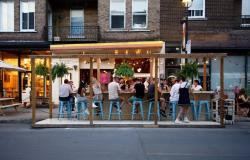We should not expect lively and muscular debates as part of the race for the leadership of the Liberal Party of Quebec (PLQ). This is simply not in the habits of the house.
Throughout the exchanges on Saturday and Sunday, the candidates remained polite and courteous-perhaps too much. On both sides, we barely dared to interrupt or challenge ourselves. It was to wonder if we really attended a debate.
This is true from the bottom, as in form. In terms of economy, no one will be surprised to know that the next liberal chief, whatever it is, wishes to enhance the productivity of companies, reduce their administrative burden and bring order to public finances.
In terms of language, everyone carefully avoided the question when asked if they were too often heard English on the island of Montreal. Unsurprisingly, all the candidates promise to protect French, without compromising the rights of the English -speaking community.
It lacks precision, there are not a lot of details
deplored a longtime activist, after the second debate. He hopes that candidates will dare to advance more in the coming weeks.
Races that do not make waves
Come to attend the first confrontation
the veteran Ronald Poupart recalled that liberal races rarely give rise to great debates of ideas. We do not like to get bogged down in the public square. There we have visions which are almost semblable, there are just small changes
summarizes the man who was director general of the party in the 1970s, before exercising various functions in the offices of Robert Bourassa, Claude Ryan and then Jean Charest.
The first leadership that I lived was that of 1970 with Robert Bourassa, Pierre Laporte and Claude Wagner and it was like that: we present what we are, but we do not criticize the other
he says.
If that did not prevent the Plq To bounce back in the past, it is to admit that the party is today in a much more precarious situation. Political training collected a meager 14 % support in the last elections and only elected one deputy outside the great Montreal region. This is without talking about the most recent polls, hardly more encouraging.
Since the departure of Dominique Anglade, deputies and activists have called a real mixing of ideas, but we are still far from the account. The proposals made so far by the candidates have aroused very few reactions. Lying off the beaten track, farmer Mario Roy wishes the carbon scholarship, but his commitment has not found an echo.
Flagship proposal of the consultation and reflection committee on the revival of Plq To win back the French -speaking electorate, the idea of providing Quebec from a constitution does not arouse much enthusiasm either. If none of the candidates categorically rejects the concept, the majority of them do not intend to make it a priority.
Open in full screen
Madwa-Nika Cadet and André Pratte headed the consultation and reflection committee on the relaunch of the PLQ, which recommended that Quebec will have a constitution.
Photo : The Canadian Press / Jacques Boissinot
Pablo Rodriguez targeted
Knowing what side the wind is blowing is never easy in a race for management. This is all the more hazardous when the outcome of the ballot is determined by a score system which places all the constituencies on the same foot, in addition to granting third of the votes to members of 25 and under.
Judging by the rare attacks heard during the weekend, all seem to be for granted that Pablo Rodriguez enjoys a certain advance. On Saturday, Charles Billion mentioned the spending nature of the Trudeau government, to which Mr. Rodriguez belonged, while Karl Blackburn deplored the assessment of the same government in matters of immigration.
On Sunday, Mario Roy reproached Pablo Rodriguez for having remained his arms crossed after the adoption of law 96 by the Legault government, while Marc Bélanger raised doubts about his participation in the renegotiation of the North American free trade agreement in 2018.
The selection process, however, forces aspiring chiefs to spare each other. If none of them is elected in the first round, the second choice of members will become just as important as their first.
Attacking too hard an opponent can be expensive if you end up alienating their supporters. In the context, most candidates have deemed preferable to reserve their hardest attacks for François Legault and Paul St-Pierre Plamondon rather than directing them to their rivals.

